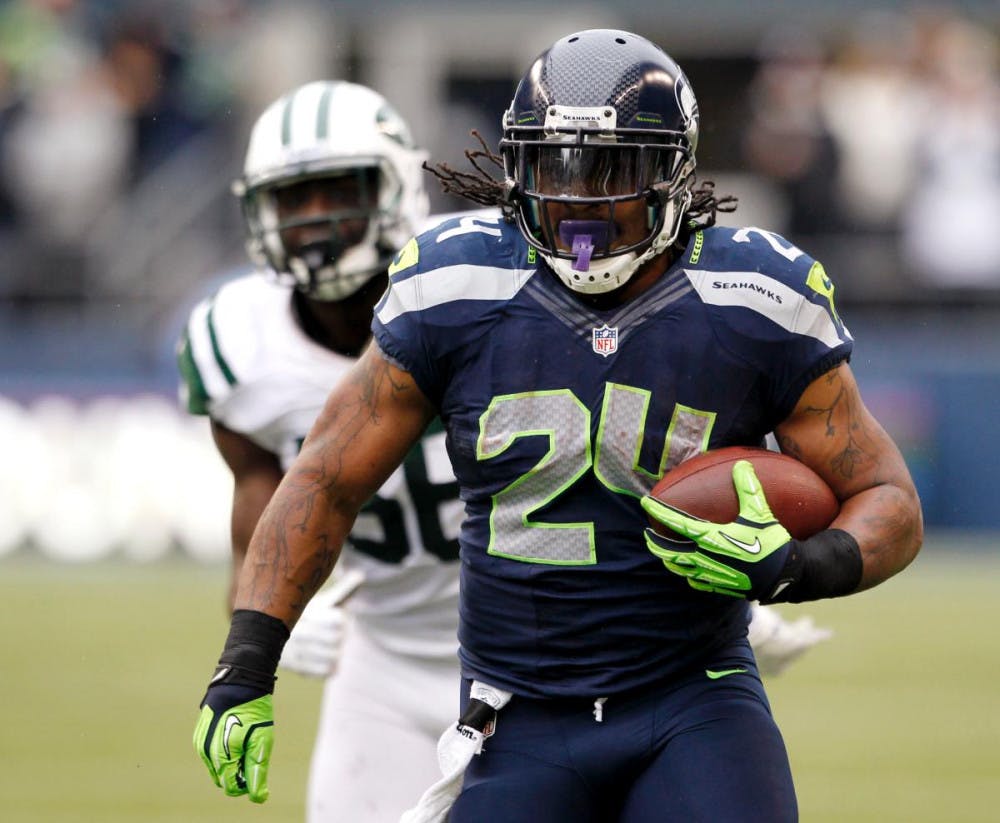By Jake Mulick
With no real qualifications to determine what the future will look like, I’m going to suspend reality. As society’s views of traditional masculine roles are changing, people will begin to gravitate toward less dangerous and physically detrimental sports and activities.
The notion that football will be played in the next century is absurd. If this were the case, then we need to decide who will be remembered as the greatest football player of all time.
The greatest player will be decided by a society that views football as brutish. It will be somebody whose intriguing personality and rough playing style was underappreciated in their time. This player’s body will have to have taken a toll, since a majority of people will think of football as a sport devoted to bashing in one’s brains. The player will be underappreciated in their time because our perception of football will change.
Now, we gauge a great football player by how well they compare to others statistically. The game will have dramatically shifted by then, and comparing statistics will prove to be nonsensical. The numbers won’t tell the same story that play style and in-game film will.
Of course, personality will be the most important part because most people need something beyond a game to entice them. They need a character, a person to fixate on and obsess over. A man in a uniform, where his face isn’t even visible, is nowhere near as appealing as someone who has actual thoughts and ideas, especially if they disagree with the current norm or cause any sort of conflict.
That being said, I think this player should be Marshawn Lynch of the Seattle Seahawks. If the future plays out as I described it and the perception of football as a sport shifts this dramatically, I think Lynch will be remembered as the greatest player of all time.

Is he actually the greatest player of all time? Absolutely not. Numbers alone will disprove the thought that Lynch is even the greatest of his era. Lynch’s aggressive, power-back style of play will lend itself to a society that will remember the sport for its proclivity to brutalism.
He has won a Super Bowl and was a member of the Seahawks team, which will be remembered as one of the better football dynasties. The most important thing about him is that he embodied a bizarre personality in the media. The lack of personality he demonstrated during his peak years will lend itself to his future fame. People will cling to what little they know about him and develop a persona around him because they can fill in so much.
He’s not like Odell Beckham Jr. or Tom Brady, who are constantly featured in pop culture. He’s ambiguous, keeping a certain distance from the limelight. What little people know about him will work to his advantage and people will fill in the blanks. There is a plethora of video of him actually playing, which makes knowledge of him easily available and lends to a resurgence of his presence in pop culture.

It is also important to observe that Super Bowl XLIX will be remembered as one of the best football games ever played. Both rosters included future hall-of-famers and the game featured a phenomenal storyline: the reigning Super Bowl champions pitted against Brady and Bill Bellicheck’s football dynasty. The interception that sealed the fate of the Seahawks will tremendously add to Lynch’s legacy, as well as a sense that he was underappreciated in his own time.
It will also add for speculation about how that play in particular affected the length of his career and his decision to retire following that season. Pete Carrol, the Seahawks coach, will undoubtedly be demonized and unfairly rewarded the blame for Lynch retiring — adding a villain to our futuristic storyline.







